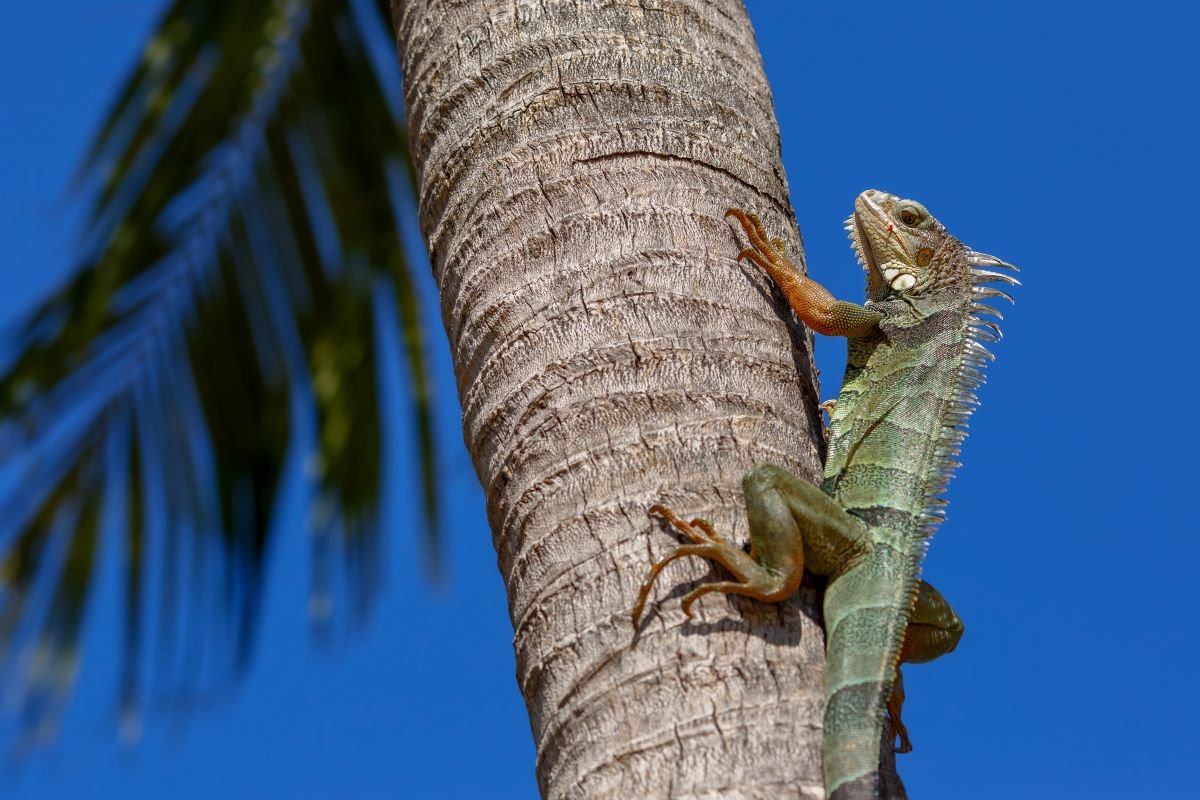A cold front sweeping through Florida has brought an unexpected consequence: frozen iguanas. As temperatures plummet below 45 degrees Fahrenheit, these cold-blooded reptiles become lethargic and drop from trees, startling residents.
Experts warn the phenomenon can be dangerous to the iguanas and people who may encounter them.
Why This Matters
The sudden cold snap is causing temperatures to dip by as much as 25 degrees below normal across the southeast.
The iguana drop-off occurs when temperatures reach a critical point for the non-native species. While cold-stunned, iguanas remain alive but immobile, posing potential hazards to unsuspecting people and vehicles.
Seeing a frozen iguana on the ground is more common during extreme cold, but residents must avoid handling it. Florida law also prohibits relocating the creatures due to their status as invasive species.

What To Know
If you come across a frozen iguana, it's essential to remember that the animal is likely in a dormant state and will usually recover once the temperature warms. The best course of action is to leave it undisturbed.
Moving a frozen iguana, especially to a different location, can cause more harm than good. Relocating iguanas is illegal in Florida, as the species is considered a non-native invasive species, and relocating them can result in fines.
Property owners are allowed to remove iguanas from their private property humanely, but any attempt to relocate them should be avoided. Experts recommend contacting licensed wildlife professionals if you're unsure how to proceed.
Where Did Florida's Iguanas Come From?
Green iguanas, also known as American iguanas, are native to regions stretching from Brazil to Mexico. They were first introduced to the wild in South Florida during the 1960s when pet owners released them after they outgrew their cages.
Since then, their population has grown steadily as the species has thrived in Florida's subtropical climate and gradually spread northward across the state.
What People Are Saying
Joe Wasilewski, a conservation biologist and a member of the International Union for Conservation of Nature's Iguana Specialist Group, to Patch: "When it gets cold like this, it's funny to those who aren't from here to see the news people talking about iguanas falling from trees, but it can and will happen."
AccuWeather meteorologist Alex Duffus, in a statement: "Should the cold wave evolve to its full potential, maximum temperature departures could plunge 30-40 degrees Fahrenheit below the historical average from the northern Plains and Midwest to the interior Southeast through the first two weeks of January."
Joe Gonzalez from iguana removal service Iguana Police, to Fox 29 in West Palm Beach: "If you capture an iguana in your own yard and don't move it anywhere else, that's fine. But if you relocate it, you're essentially taking your problem and dumping it somewhere else. This can have legal consequences, including fines."
What Happens Next
As the cold weather persists through at least January 12, iguanas will continue to be at risk of falling from trees. Experts urge residents to stay alert, be patient, and avoid taking matters into their own hands when encountering frozen iguanas.
If temperatures rise as expected, the iguanas will warm up and return to their usual behavior.
For those concerned about the iguanas on their property, it's recommended to trim branches away from structures and make trees more difficult to climb.
Do you have a tip on a science story that Newsweek should be covering? Do you have a question about frozen iguanas? Let us know via science@newsweek.com.




















 English (US) ·
English (US) ·